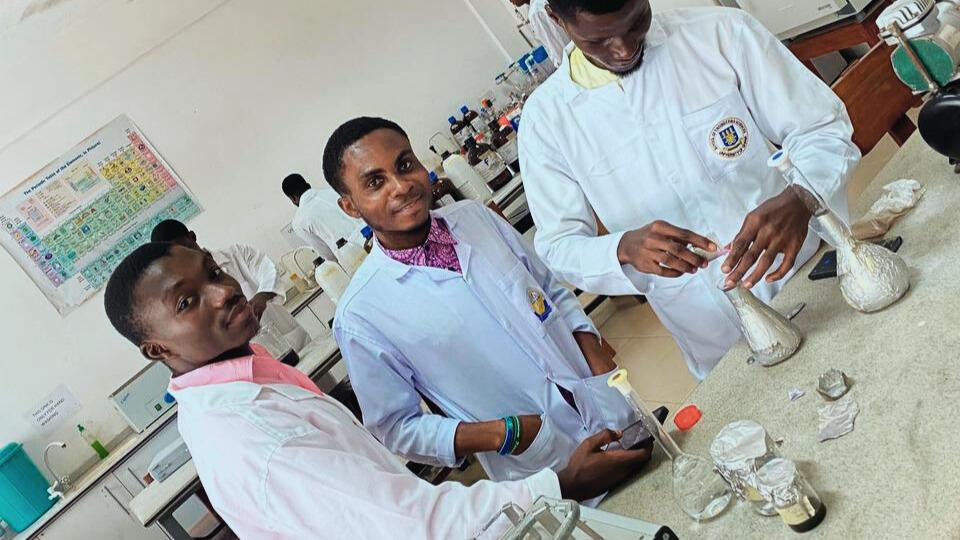
Students Innovate and Explore in the Department of Materials Science and Engineering Lab
The Department of Materials Science and Engineering lab at the University of Ghana is a hub of innovation, where students actively engage in hands-on projects that blend theory with practice. From undergraduate to postgraduate levels, these projects are not only enriching students’ academic experiences but also pushing the boundaries of research and technology in various fields of material science.
Fostering Innovation and Practical Skills
Students working in the lab gain valuable practical skills by applying the concepts they learn in lectures to real-world challenges. One of the lab's primary focuses is on understanding the behavior and performance of materials under different conditions, which is crucial in industries ranging from automotive to aerospace, and electronics to biomedical engineering.
A typical project might involve analyzing the properties of polymers, metals, or ceramics, testing for mechanical strength, durability, or corrosion resistance. This hands-on experience helps students understand the lifecycle of materials and how they can be modified for specific applications. For instance, recent student projects have explored innovations in recycling waste plastics into composite materials, an initiative that aims to tackle environmental concerns while creating sustainable building materials.
Cutting-Edge Research and Equipment
The lab is equipped with cutting-edge tools and technology that allow students to carry out advanced experiments. Equipment such as tensile testing machines, electron microscopes, and thermal analyzers are crucial for projects that require precise measurements of material properties. This exposure to sophisticated equipment provides students with the technical expertise that is sought after by industries worldwide.
One notable project involved a team of final-year students testing the mechanical properties of reinforced polymers used in structural applications. By varying the composition of metal fibers used for reinforcement, the team aimed to create a stronger, more durable composite material suitable for use in high-stress environments like construction and manufacturing.
Collaboration and Mentorship
Students in the Materials Science and Engineering lab often work in teams, which mirrors the collaborative nature of research and development in professional settings. Collaborative projects help develop teamwork and communication skills, as students must coordinate tasks, share insights, and overcome challenges together.
The faculty plays a key role in guiding student projects. Professors and lab supervisors provide mentorship, ensuring that students not only understand the technical aspects of their work but also how to approach problems creatively. This mentorship is critical for students aiming to pursue careers in research or industry, where independent problem-solving and critical thinking are essential.
Real-World Applications and Impact
Many of the student projects in the lab address real-world problems. For example, some are focused on creating materials that can withstand extreme environmental conditions, which could be used in mining equipment or renewable energy technologies. Others investigate ways to develop sustainable and cost-effective materials for construction, helping to reduce the environmental footprint of industries.
Recently, a team of postgraduate students has been exploring the potential of graphene, a super-strong, lightweight material, in developing next-generation energy storage devices. Their work could have implications for the future of battery technology, potentially leading to more efficient, longer-lasting batteries for use in electric vehicles or portable electronics.
Preparing the Next Generation of Engineers
Ultimately, the projects undertaken by students in the Department of Materials Science and Engineering lab are not only about completing academic requirements; they are preparing the next generation of engineers and scientists to tackle complex global challenges. The skills and knowledge gained through these projects provide a strong foundation for careers in research, manufacturing, materials development, and beyond.
As they work on these cutting-edge projects, students are gaining more than just technical skills—they are learning how to innovate, how to think critically, and how to contribute to solving some of the world’s most pressing challenges through the science of materials.
